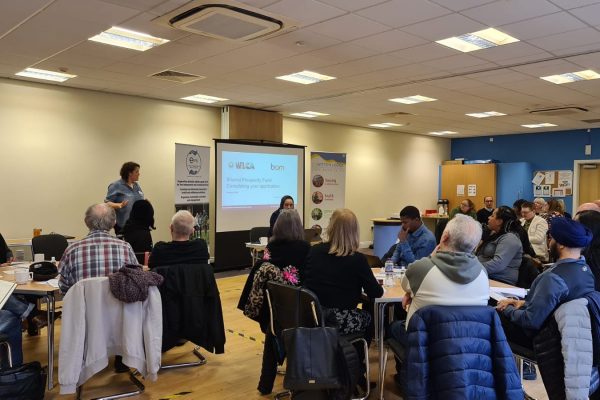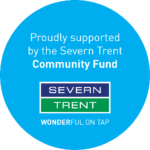What do I write in a grant application form? The deadline is very soon!
Birmingham Community Matters (BCM) was pleased to deliver a grant application workshop recently, for community organisations applying for a small grants programme with an imminent deadline.
Witton Lodge Community Association (WCLA) asked us to support people interested in applying for the Small Grants Programme, funded through the UK Shared Prosperity Fund.
The programme was offering grants of up to £10,000 for groups to develop and deliver services for vulnerable residents in the Erdington constituency. It sought to build community capacity, capability and local networks.
Short turnaround time
WCLA recognised that the opportunity was unmissable for many small Erdington groups – yet challenging due to the very short turnaround time given for making the grant applications. So the team hosted an information event to help people with the process.
At the event, BCM joined attendees from around 25 voluntary and community organisations at Perry Common Community Hall. Alongside the WCLA team, we gave a thorough introduction to the grants programme, plus one-to-one support with completing the application form.
Part of our approach involved walking attendees through key parts of the application form. We encouraged groups to share their ideas and help one another to prepare their responses.
“Each person left with a good part of their application form written”
Our CEO Jo Burrill, who led the session, said: “The timescale for the funding round was tight so it made sense to use the time to write practical answers to the form during the day. That meant each person left with a good part of their application form written.
“We heard about lots of great ideas and activities to benefit the local people of Erdington. It’s always a pleasure to facilitate a session that encourages local groups to learn from and support each other too.”
In later social media posts, WCLA said: “Thanks to the brilliant team from Birmingham Community Matters for facilitating the event and a big thank you to everyone that attended today. We were thrilled to have such a fantastic turnout just eight days after launching the programme! Community is at the heart of everything we do and with uncertain times ahead across our city, this funding will give a much needed boost to the delivery of vital services across Erdington.”
Good luck to everyone who made an application to the Small Grants Programme. We look forward to hearing about the great things that happen in Erdington as a result of your hard work.
![]()
Our top tips for meeting grant application deadlines
1. Pause! Check that the aims of the fund fit with what you want to do. Funders distribute money to community groups to further the funder’s aims. So it is vital that there is a good match between what they want to achieve and the positive change you want to make through your project. Sometimes, when the pressure is on to meet a deadline, we forget to consider this.
2. Talk to other members of your group and get their support in tackling each question. They will help you retain clarity about what you want to achieve – especially when you’re up against the clock.
3. Keep your responses simple. Use bullet points to outline your project, the ‘need’ for it, and the key steps involved in achieving it.
4. Be realistic about what is possible. Sometimes a narrow window for applying for a grant may also mean a short timescale for delivering the project. Don’t put yourself under pressure if it all feels out of reach.
5. Draft your responses elsewhere to paste into the application form later. This can help you organise your thoughts more logically. It also prevents you from losing precious time and answers if a website crashes or an online form malfunctions.
Three more tips for tackling grant application forms
6. Set the scene. Assume that the assessor reading your application doesn’t know you, your group or your work. Explain clearly why your project is needed and how you know this. For example, because you’ve spoken to local people, groups and professionals, or carried out surveys, or because of a known gap in service provision.
7. Make life easier for the assessor! Avoid using jargon. Spell out acronyms on their first use.
8. Find a critical friend. Ask someone who is not familiar with your project to read your drafted application and give you feedback. They should feel confident in asking questions like, ‘What does that mean?’ or ‘How will you do that?’ Once your updated application makes good sense to them, an assessor will find it easier to process too.




